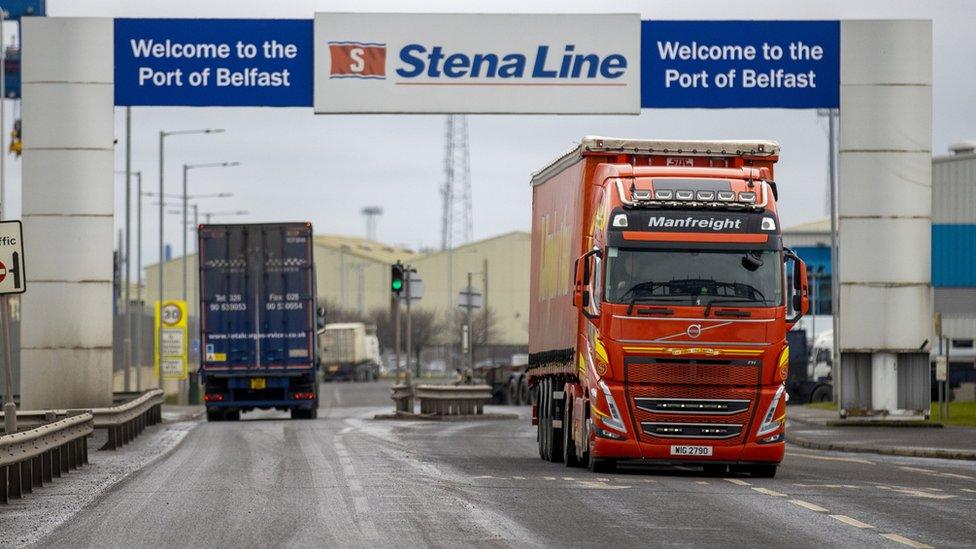Meat factories and ports in NI face vets' strike disruption
- Published
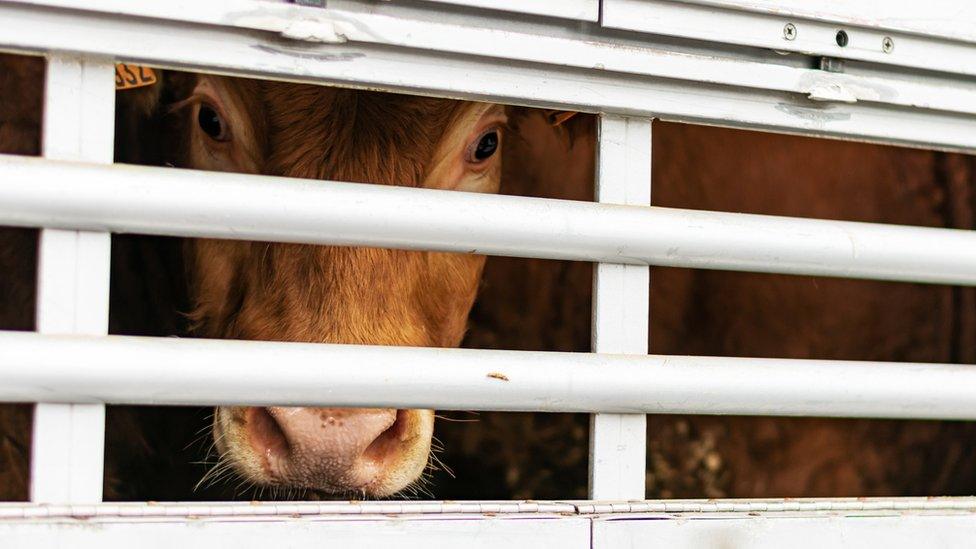
Some meat factories in Northern Ireland are expected to close while the vets are on strike
Food production and border controls in Northern Ireland are facing disruption after government vets began a five-day strike.
Union members in the Veterinary Service Animal Health Group (VSAHG) started the action at midnight.
The vets perform checks on animals and some food products entering Northern Ireland from Great Britain.
They also have to monitor the operation of abattoirs and certify some meat exports.
The British Meat Processors Association (BMPA) said no slaughter of cattle, pigs, sheep or poultry can take place unless official vets are in abattoirs.
It said that meant some meat plants would have to shut, resulting in disruption to the food supply chain.
But supermarkets are playing down the risk of product shortages.
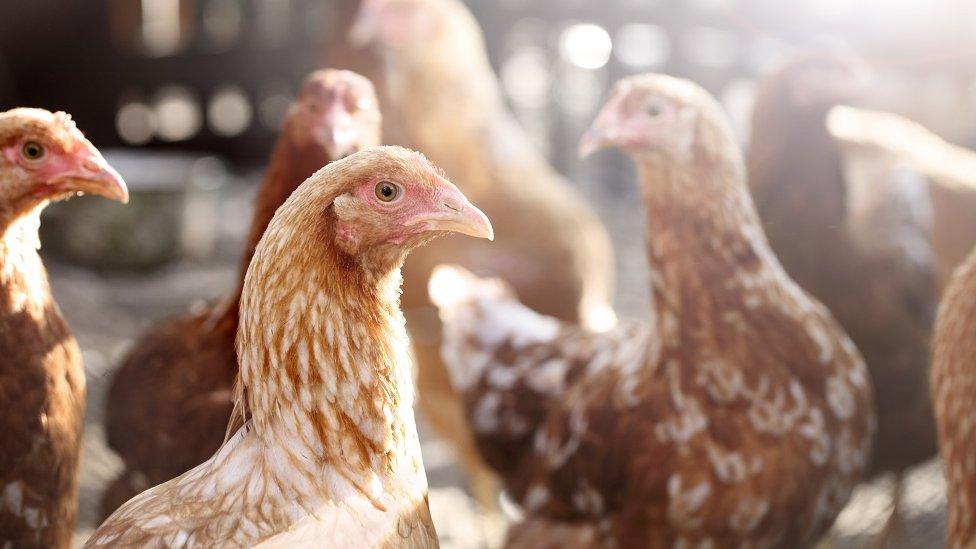
Government officials say they will prioritise veterinary staffing at poultry processing plants
Stormont's Department of Agriculture, Environment and Rural Affairs (Daera), which employs the vets, said it would prioritise staffing at poultry factories.
Daera said it "cannot guarantee the provision of official controls and activities across all slaughter and animal processing establishments from 30 October to 3 November".
It added that to mitigate the impact on animal health and welfare it would "prioritise the slaughter and processing across the intensive livestock sector commencing with poultry, reviewing the situation daily and modifying service provision where capability allows".
It is understood the red meat sector intends to keep major plants operating and is not anticipating shortages for consumers.
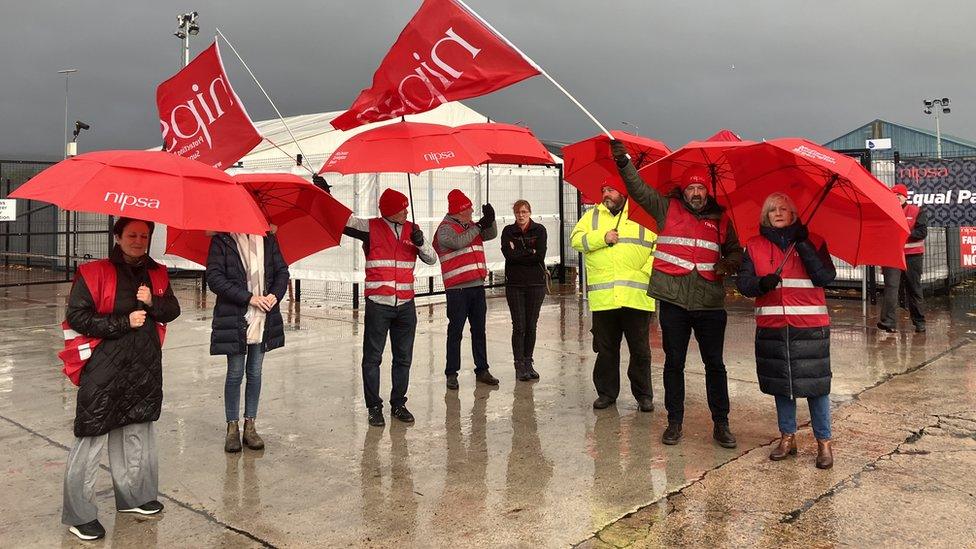
Government vets are represented by the Nipsa union
John McClenahan of the Ulster Farmers Union said the strike has come at the worst possible time for producers.
"A lot of our factories are looking at the run into Christmas," he told BBC News NI's Good Morning Ulster programme.
"It's probably not coincidental that the strike has been called to coincide with that."
However, Mr McClenahan said farmers are sympathetic to the situation.
"As farmers, we understand the argument around equal pay for service providers," he said.
"We get the reason for the strike, but we think it's a bit unfair that our farmers are having to pick up a substantial cost for this action."
'A crucial time'
Louise Hosking of the Chartered Institute of Environmental Health (CIEH) expressed concern about the impact of the industrial action.
"This is a crucial time for the food sector and trade flow in Northern Ireland and we need to ensure that food safety and animal welfare standards are maintained at all times," she said,
Ms Hoskin urged the UK government to resolve the dispute "as soon as possible".
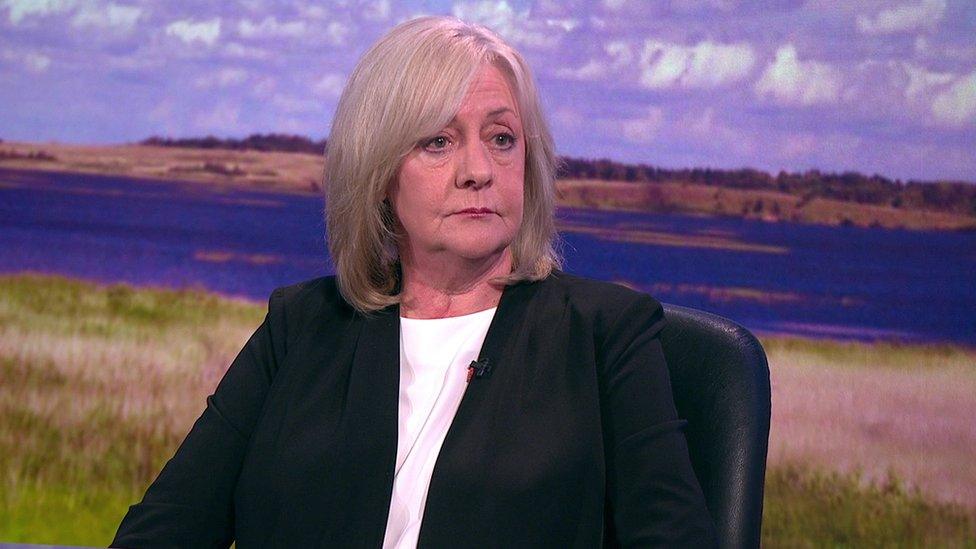
Carmel Gates from Nipsa criticised Chris Heaton-Harris for not engaging with her union over the pay dispute
The Nipsa union, which represents the vets, said their walkout was over a "decision to impose a derisory pay award of £552" for civil service staff.
Carmel Gates from the union said its members were "fed up" with below-inflation pay offers.
She told BBC News NI's Sunday Politics programme that she had written to Northern Ireland Secretary Chris Heaton-Harris on four separate occasions to request a meeting to discuss pay.
She said it was "incomprehensible" that he had not engaged with the union as its members were "essential to the food chain and essential to ensure the trade will flow".
BBC News NI's Economics and Business Editor John Campbell explains how the system works
Government vets are central to the food and agriculture aspects of the Irish Sea trade border - the post-Brexit controls on some products being sent from Great Britain to Northern Ireland.
The strike will mean some products will need to be shipped through Dublin rather than Belfast.
That will affect some "red lane" goods - food products entering Northern Ireland from Great Britain which are due to be moved on the Republic of Ireland or which have an uncertain final destination.
Those goods have to be checked, while "green lane" goods which are staying in Northern Ireland are subject to lighter-touch processes.


While farmers understand why vets are striking, there is concern about the potential impact on animal welfare.
There are warnings that, if slaughter is suspended in the absence of veterinary supervision, pigs in particular will start to back up on farms.
Animals could also end up "out of scope" - too big for supermarket shelves - and unable to be sold.
They'll still go to slaughter, but meat processing plants will charge a penalty for overweight animals and there is unlikely to be any compensation for farmers for that cost.
If a farmer can't sell animals, that means there is no space to bring new ones in.
That could also affect income at a time of year when farmers would expect to be meeting high demand ahead of Christmas.

Daera said that during the strike green lane products should be sent as normal and the usual paperwork will be carried out retrospectively.
The major supermarkets send the vast majority of their products via the green lane so they anticipate minimal disruption.
Glyn Roberts, chief executive of Retail NI, said that while "certainly there will be disruption", the question is how much, and what its impact will be.
"I think the one thing that we do want to get across to consumers is, don't panic buy, don't stockpile. Shop as normal because we're working through this problem," Mr Roberts said.
"Obviously it has an impact on the supply chain but consumers shouldn't see any difference when they do their normal shop."
Neil Johnston, the director of the Northern Ireland Retail Consortium, said: "Consumers will notice very little impact on shop shelves in the short term as we are hopeful that movements through both red and green lanes of goods going into Northern Ireland will continue as normal.
"That said, some disruption of goods travelling on to the Republic seems inevitable.
"However, the possible significant impact of the strike on the agri-food sector and the wider food supply chain is concerning."
Alternative arrangements
Non-supermarket operators, such as wholesalers and food service, will face a bigger challenge as they make greater use of the red lane and so will have to divert more of their shipments to Dublin.
The strike will also affect the movement of livestock - animals moving from Great Britain to Northern Ireland have to be inspected by vets, an arrangement which existed before Brexit.
Daera guidance states: "Traders intending to move live animals to Northern Ireland during this period should make alternative arrangements or seek to defer the movement of the animals until after the strike has concluded."
The UK government said it was working closely with Daera to mitigate the effects of the industrial action, particularly on the food supply chain, and to maintain essential statutory obligations.
Related topics
- Published26 October 2023
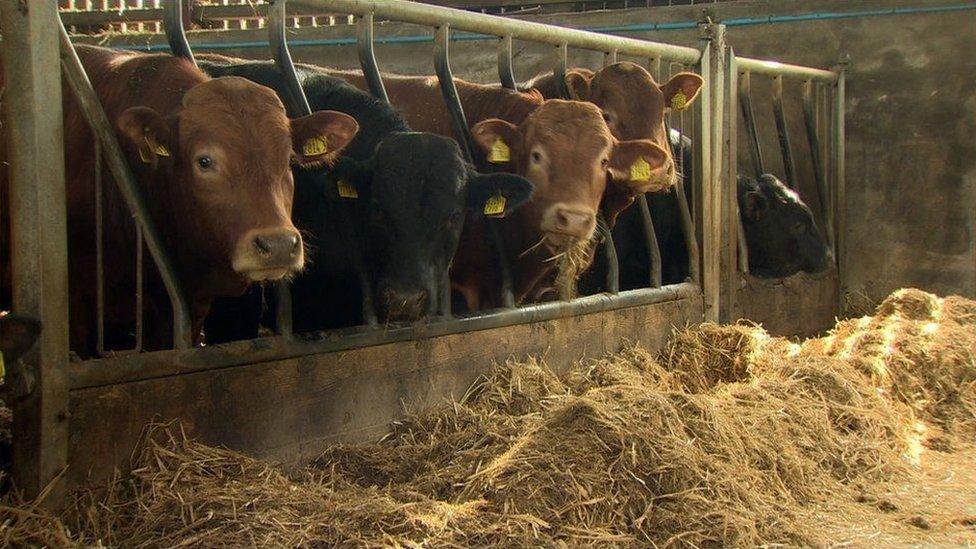
- Published2 February 2024

- Published27 February 2023
